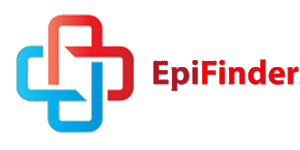EpiFinder, Inc., announced its proprietary clinical decision analytics software to improve epilepsy syndrome diagnosis and seizure event management at the point-of-care. The early-stage Arizona company provides intelligent analytics and support to doctors, neurologists and healthcare professionals (Nurse Practitioners, Physician Assistants, and more) to enhance the lives of patients with epilepsy.

“EpiFinder’s vision is to revolutionize the care of all neurological disorders by combining cutting edge scientific research with the latest technologies to the doctor-patient relationship”
EpiFinder aims to improve the doctor-patient relationship. First, it can improve communication by more efficiently collecting information from the patient. Then, the system organizes this information so that the doctor can better understand the patient’s perspective. It then maps this to the latest aggregate knowledge towards better interpretation, advanced, efficient treatment, and reduced cost.
Per the Institute of Medicine report ‘Epilepsy Across the Spectrum,’ epilepsy is a brain disease that manifests as seizure events. In the United States alone, epilepsy affects 3.2 million people with 150,000 new epilepsy cases ever year. Of these, as many as 40% of patients with epilepsy are misdiagnosed and suffer from uncontrolled seizures, which limits their independence at best and can result in death at worst. People often suffer for years before their epilepsy can be correctly identified and treated. The monetary cost of epilepsy misdiagnosis and mismanagement of healthcare is $12.5 billion annually.
Patients frequently complain that doctors do not listen to them, while doctors complain that there are too many obstacles that reduce their time with their patients. When a first responder currently encounters, someone is experiencing a seizure; they collect general medical information for referring the patient to another healthcare professional. This process is inefficient, with the patient having to tell the same story to multiple health professionals and redundantly taking the same diagnostic tests as a chain of referral after referrals. Ultimately, when the specialist – epileptologists who can make the diagnosis – is found, the information collected may or may not even be relevant to the doctor who will ultimately diagnose and manage the condition.
EpiFinder can improve the efficiency of this process by guiding the data collection of the first responder or primary care professional, standardizing data usability, screening the information with evidence-based, peer-reviewed research and data, providing a guided differential diagnosis of epilepsy syndromes through translational biomedical informatics technology, and then implementing it through personalized medicine. This provides the latest actionable knowledge for the doctor to decide whether to either keep and treat the patient themselves or to refer them to specialists while allowing the primary care physician the opportunity to retain their patients. When the referral is necessary, the information collected is relevant to the specialist. For the patient, this reduces redundancy and cuts down on the time that proper action can be taken to limit the seizures. This is a tool that will be a new class of product to better assess and triage the patient population in a clinical setting.
“By providing quicker and more accurate diagnoses for an epilepsy syndrome, EpiFinder reduces health care costs for hospitals, enables doctors to provide personalized medicine, and helps to improve the quality of life for their patients.” –Robert Yao, CEO of EpiFinder, Inc.
EpiFinder provides value to patients by providing them a time-independent platform that can collect all the information they wish to provide first, saving them money and endless frustration. An algorithm then analyzes this data and presented to the doctor within the context of the latest knowledge. The doctor is then freed to understand the patient better and empowered to make better decisions about identification and management of the condition.
EpiFinder co-founders believe they have developed a sustainable business model that will result in exponential growth because it relies on a robust AI for all complex disease. While their initial launch will focus on decision support for epilepsy, the company’s goal is to expand the system for other neurologic or psychiatric diseases and eventually to more complex, rare, or hard to diagnose conditions. By translating science to improve people’s health, the team at EpiFinder is working hard to turn the art of medicine into a science.
“At the heart of EpiFinder,” says Mehta, “are the people. They achieve excellence and create value within their chosen fields while working in a collaborative and supportive environment.”
EpiFinder’s award winning, multidisciplinary team includes Biomedical Informaticist and software developers with expertise in artificial intelligence, knowledge representation, machine learning, and statistics. The company’s leadership has received numerous recognitions, and together, they work in harmony to deliver a product that can change lives on a global scale.
“EpiFinder’s vision is to revolutionize the care of all neurological disorders by combining cutting edge scientific research with the latest technologies to the doctor-patient relationship”, said Neel Mehta, at the 14th conference on Anti-epileptic Drug and Device Trials, held every two years and sponsored by The Epilepsy Study Consortium in collaboration with the University of Pennsylvania and the Epilepsy Foundation.
